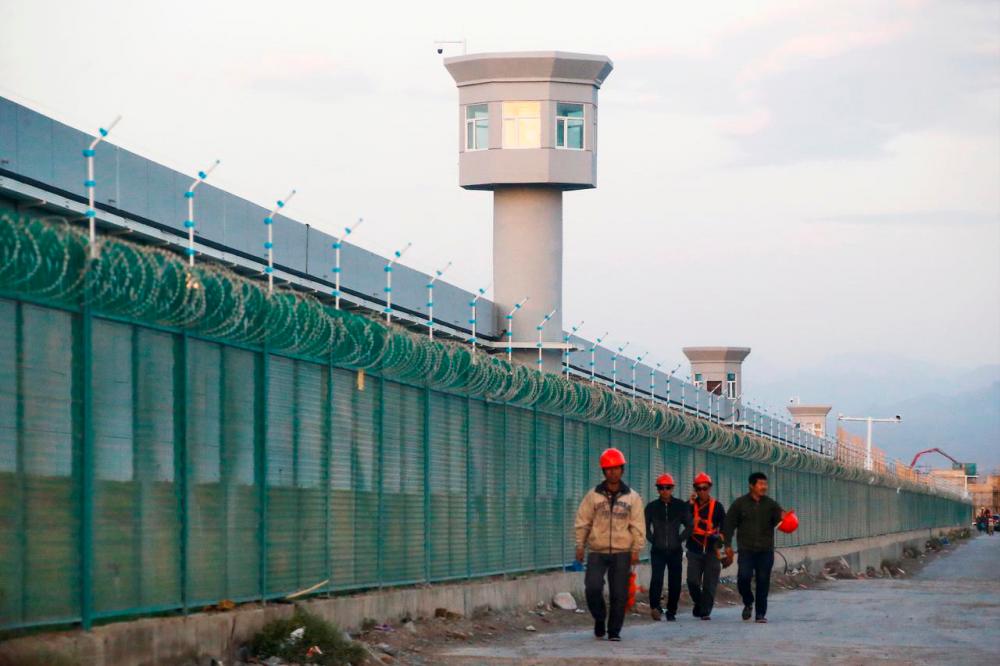THE Xinjiang province of China is well known for the Muslim-Uighur population. Accusations were made by the Chinese government that a section of the Uighur populace has committed acts of terrorism in pursuit of independence for the region.
As a response to the terroristic acts, China was alleged to have created concentration camps where Muslims were detained without trial. Of course, the Chinese government has denied allegations stating no concentration camps exist.
Only recently, evidence has surfaced showing that indeed there are concentration camps in the region. But before we get into that, we need to understand the bigger picture by asking the important question ...
Who are the Uighurs?
Two years ago, Cilisos wrote an article concerning 11 Uighur men who were detained and released in Malaysia. In that article, they explained who the Uighurs were.
The Uighurs, based in North West China, are mostly Muslims who speak in a Turkish dialect. The region, which is now known as Xinjiang, then became part of China.
Somewhere in the early 1900s when the Qing Dynasty fell, the Xinjiang province became self-ruling with rebels, declaring independence. But not too long after, The Chinese Communist Party gained power in China and retook Xinjiang, and later declared it an autonomous region.
It is believed that China wanted the region for its resources and thereafter Han Chinese residents from outside started pouring in and ...
That’s where the tensions started
According to the New York Times, during this time of distress, local Uighurs were not hired by the Hans and were forced to relinquish their cultural identity to assimilate with the Hans.
This then exacerbated militant movement in the region and of course, China retaliated.
Okay, so what about the concentration camps?
A panel from the United Nations (UN) alleged that Xinjiang was a massive internment camp like area with detainees claiming that they were tortured and indoctrinated by the Chinese authorities.
However, the government denied these allegations, stating that those were vocational camps to rehabilitate terrorists.
Nevertheless, the region seemed to be shrouded in secrecy and information exiting the area was tightly controlled.
Reuters analyzed satellite images
Working with Earthrise Media, Reuters analyzed satellite images along with construction tenders. They noticed a build-up in the area which tripled in size over 17 months — coming to a conclusion that these vocational facilities now cover an area of 140 football fields.
The construction tenders revealed technical specifications of the buildings which included guardhouses, surveillance systems with no blind spots, and automatic weapons along with their safe storage.
80 facilities were identified, but Reuters focused its analysis on 39 easily-identifiable camps. The co-founder of Earth Rise said, “I was immediately struck by how many camps there were, how large, and how quickly they are growing. In a matter of months, they are built five-story buildings, longer than football fields, lined up in rows in the desert.”
Reuters visited the location of seven facilities, noting that they had imposing perimeter walls, guard towers and armed guards at entrances. When reporters approached the compounds, police pulled them over and told them to leave.
It was further stated by Reuters that foreign reporters who arrived in the region of Xinjiang were closely followed and monitored by the local authorities with roadblocks erected to prevent reporters from reaching the camps.
It’s not just Reuters
Media outlets such as BBC and Vice have visited the region and reported similar occurrences.
One BBC reporter who interviewed Chinese officials received a peculiar response regarding the detention of Uighur citizens without trial. They told BBC that they were able to tell if someone is going to commit a crime before they actually commit a crime. This response is peculiar because it goes against the very nature of the universal concept, ‘innocent until proven guilty beyond a reasonable doubt’.
And as for Vice, their attempts at trying to interview local Han residents received responses that were discriminatory against the Uighurs. In fact, certain attempts at conducting informal interviews on the streets were met with police interference and bullying.













